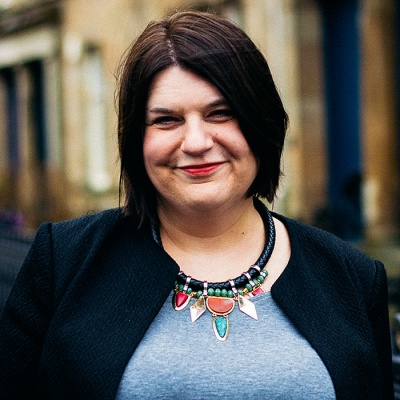Speaker

CEO, ScottishPower
Keith is Chief Executive Officer for ScottishPower and he also sits on the ScottishPower Board, where he was appointed in February 2012.
Keith has full responsibility for the Company’s activities in the UK including the £5.3bn investment plan to 2022 designed to strengthen the position of the Company as the Utility of the Future.
Prior to joining ScottishPower, Keith had worked with some major financial institutions including The Royal Bank of Scotland and Standard Life, as well as working as a management consultant with Ernst & Young.

Director, CBI Scotland
Tracy Black was appointed Scotland Director on 1 January 2018, having first joined the CBI as Deputy Regional Director for Scotland in April 2017. A recognised thought-leader within the Scottish business community, Tracy regularly appears on platforms alongside Scotland’s foremost political and business leaders and has a growing reputation as an essential economic commentator.
Alongside a varied and distinguished career in the financial services sector, where she worked with top tier global financial institutions like Goldman Sachs International and UBS AG, Tracy has experience of working with a range of SMEs and entrepreneurial start-ups, particularly spin-outs from the higher education sector.
Tracy has also provided advisory services to a range of start-ups and financial services companies and is currently co-owner of Carter Vintners Limited, a company producing high quality Australian wines.
In addition to professional roles, Tracy has been actively involved in leadership and mentoring programmes, in particular working with school children, prisoners and ex-offenders. She also sits on the Boards of Skills Development Scotland, The University of Strathclyde Enterprise & Investment Committee and Chairs the ScotRail Alliance Stakeholder Panel.

President of the Royal Academy of Engineering and Principal and Vice-Chancellor, University of Strathclyde
Professor Sir Jim McDonald is Principal and Vice-Chancellor of the University of Strathclyde. He Co-chairs, with the First Minister, the Scottish Government’s Energy Advisory Board. He is Chairman of the Independent Glasgow Economic Leadership Board. He holds several senior business appointments with organisations including the Weir Group plc, Scottish Power plc, the UK Offshore Renewable Energy Catapult and the UK National Physical Laboratory. In the Queen’s Jubilee Birthday Honours List 2012, Professor McDonald was awarded a Knighthood for services to education, engineering and the economy. He was elected President of the Royal Academy of Engineering in September, 2019.

The Leader, Glasgow City Council
Susan Aitken became Leader of Glasgow City Council when the SNP became the largest party on the Council and formed a minority administration in May 2017. She was elected as a councillor for the Langside ward, where she lives, in 2012 and has been leader of the SNP group since 2014, having previously served as the group spokesperson on health and social care.
Before being elected, Susan worked in a variety of policy and research roles in the Scottish Parliament and the third sector, and as a freelance writer and editor specialising in health and social care policy. She grew up in Biggar in South Lanarkshire, moved to Glasgow aged 17 and is a graduate of both Glasgow and Strathclyde Universities.

Chief Editor, BloombergNEF


Present policies concentrate on the desperate need to get to zero carbon emissions as soon as possible. However, if we were able to do that, the concentration of atmospheric greenhouse gases will be what we have now plus what we will be emitting between now and the zero-emission date minus the (decreasing) amount taken up by the oceans. This means that typhoons, floods, droughts, bushfires, sea-level rise, Arctic ice loss and damage to coral will all be worse, perhaps much worse than at present. Zero is not low enough. As well as reducing emissions we will have to remove greenhouse gases and also do direct cooling. The necessary cooling energy is enormous compared with present energy use but small compared with the solar input. It follows that quite a small increase in planetary reflectivity could offset the thermal effects of the increased greenhouse gas concentration.
In 1990 John Latham pointed to work by Sean Twomey on the reflectivity of clouds which showed that reflectivity depends on the size distribution of cloud drops. For the same amount of water, a larger number of small drops will reflect more than a smaller number of large ones. Latham suggested that the reflectivity of marine clouds could be increased by a change in the concentration of cloud condensation nuclei by spraying drops of filtered sea water into the marine boundary layer where turbulence would mix them. The solar energy reflected by a cloud drop is tens of millions of times more than the surface tension energy needed to make a condensation nucleus.